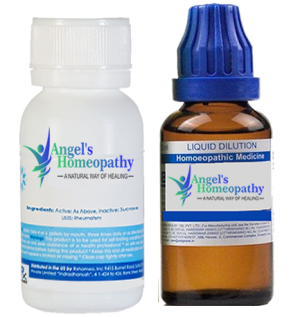


D.: (1994) Is evidence for homeopathy reproducible? Lancet 344:1601 H., Mc Sharry, C., Aitchison, T.C., Carter, R., Stevenson, R.
#Cuprum homeopathie trial#
M., Mc Sharry, C., Aitchison, T.: (1986) Is homoeopathy a placebo response? Controlled trial of homoeopathic, with pollen in hayfever as model. (5) Kleijnen, J., Knipschild, P., ter Riet, G.: (1991) Clinical trials of homeopathy. (4) Ullman, D.: (1991) Discovering Homeopathy: Medicine of the 21th Century. (3) Gibson, S., Gibson, R.: (1987) Homeopathy for everyone. S., Gilman, A.: (1992) Le Basi Farmacolologiche della Terapia. 299: 107 & Grünwald, J., Jänicke, C.: (2004) Grüne Apotheke, Gräfe und Unzer, S., Repräsentative Umfrage der Zeitschrift ✺potheken-Umschau«, in: & Bouchaier, F.: (1990) Alternative medicines: A general approach to the french situation. (4) Fisher and Ward: (1994) Complementary medicine in Europe. (3) Handley, R.: (1990) A homeopathic Love Story. (2) Bellavite, P., Signorini, A.: (2002) The Emerging Science of Homeopathy: Complexity, Biodynamics and Nanopharmacology. (1) aus: Oetmeier, R., Reuter, U.: Biologische Krebstherapie (2006) Der Heilpraktiker &Volksheilkunde, 6/06, S.34 & Schlesinger-Raab, A., Eckel, R., Engel, J., Sauer, H., Löhrs, U., Molls, M., Hölzel, D.: (2005) Metastasiertes Mammakarzinom: Keine Lebensverlängerung seit 20 Jahren Deutsches Ärzteblatt 102, Ausgabe 40 (2010) Large-scale application of highly-diluted bacteria for Leptospirosis epidemic control. J, García, L., Gilling, E., Leyva, R., Rufín, R., de la Torre, R., Solis, RL., Batista, N., Borrero, R., Campa, C. (5) Bracho, G., Varela, E., Fernández, R., Ordaz, B., Marzoa, N., Menéndez.
#Cuprum homeopathie professional#
Electronic data organised by Mark Witko in Cara Professional und in google.books (4) Anshutz: New, Old and Forgotten Remedies.

(3) Gauß, F.: (1969) Wie finde ich das passende Arzneimittel? Haug Verlag, Heidelberg, S.114 ff. 124 & Judson, H.: (2004) The Great Betrayal. S.69 & Engelbrecht, T.: (2005) Die »Industrie macht Druck«, Interview mit Marcia Angell, Ex-Chefin des New England Journal of Medicine über redaktionelle Unabhängigkeit, Wissenschaftsbetrug und den (Un)Sinn von Peer Review, Message 3/05 S.66 Ioannidis, J.: (8/2005) Why most published research findings are false, Plos Medicine, p. (2) Taylor, R.: (2005) Cash Interest taint drug advice, Nature, S.1070 & Martinson, B.: (2005) Scientists behaving badly, Nature, S.737 & Moynihan, R.: (2003) Who pays for the pizza? Redefining the relationships between doctors and drug companies, British Medical Journal, S.1189 & Mc Carthy, M.: (2004) Lies, Damn lies, and scientific research, Lancet, S.1658 & Abramson, J.: (2005) The Effect of Conflict of Interest on Biomedical Research and Clinical Practice Guidelines: Can We Trust the Evidence in Evidence-Based-Medicine? The Journal of the American Board of Family Practice, S.414 & Engelbrecht, T.: (2005) Gaunereien und Betrug sind auch in der Wissenschaft verbreitet, Neue Zürcher Zeitung am Sonntag, 9.1. (1) nach einer repräsentativen Umfrage der Zeitschrift ✺potheken-Umschau« im Mai 2001 in: (abgefragt 9/2010)


 0 kommentar(er)
0 kommentar(er)
